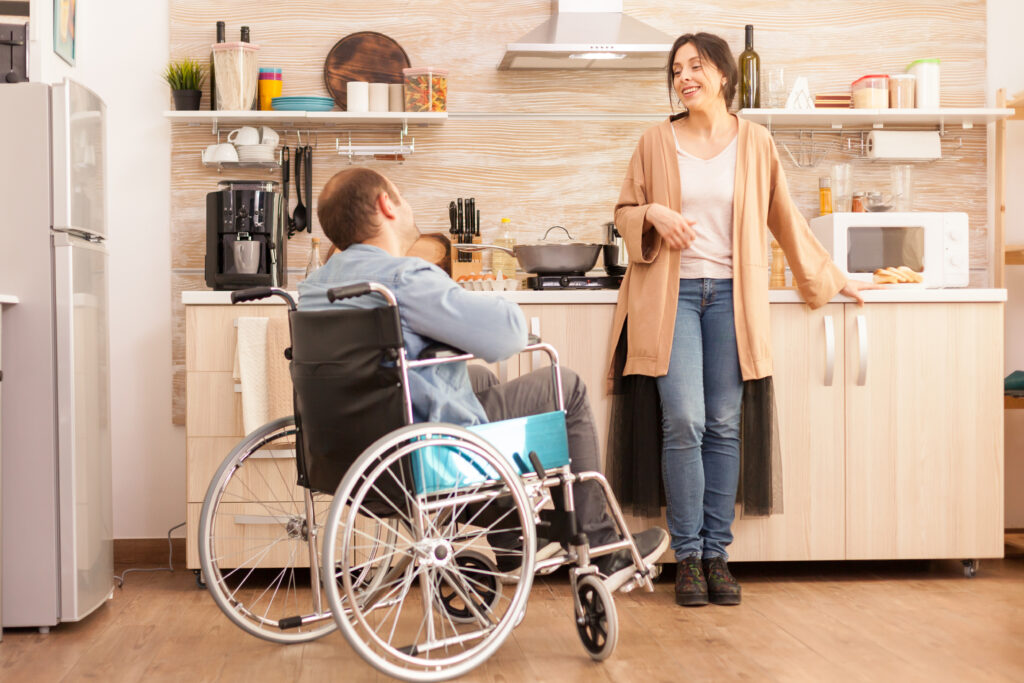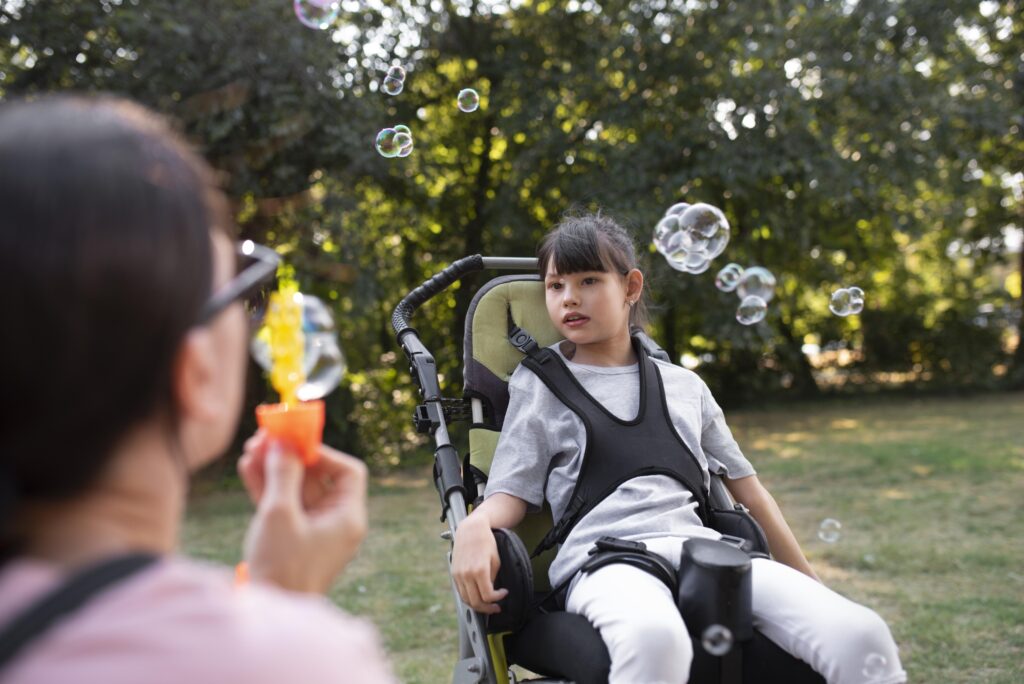
At 360 Essentials Services, we’re here for the new world of disability support – the NDIS world. We get the NDIS might seem complicated, but don't let that scare you! We can help you find out what it's all about.
What is the NDIS?
In 2013, the National Disability Insurance Scheme was founded to help those with living with a disability get the needed assistance, protect their human rights and offer them fair representation in their immediate environment.
The sole aim of the NDIS is to ensure that people living with a disability are able to achieve their daily goals and live a good normal life.
NDIS is an insurance program with a clear ideology on the need to improve on the socioeconomic system through adequate investment in people with disabilities. The scheme focuses on ensuring proper representation is established for people living with disability. Although, not means tested the program is being managed and funded by Australian citizens, it is potentially expected to have not less than 460,000 citizens with observable disabilities under the age of 65 come on 2020.
NDIS has helped to achieve maximum independence alongside employment opportunities, improved socioeconomic system and general wellbeing of people with disabilities.


Access the NDIS
People who meet the NDIS access requirements are called participants. Participants receive funded supports and an individual plan. If you are a person with disability and want to join the NDIS, you need to meet the access requirements.
These include:
- Availability of the Scheme where you live;
- your age;
- your residency status;
- your disability and in some cases your early intervention requirements
Am I eligible?
To join the NDIS you need to meet access requirements
How to apply?
If you think you meet these criteria, you can apply to join the NDIS.
- – phone 1800 800 110 and make a verbal access request, or
- – download and complete the ARF on your computer and email it to the NDIA with supporting information, or
- – download the ARF on your computer, print it out, and mail it to the NDIA with supporting information, or
- – email NAT@ndis.gov.au and ask for an ARF to be mailed, or
- – contact your local NDIA office and asking for an ARF to be mailed to you.
Local NDIA and Partners in the Community Staff can also help you apply.
Frequently Asked Questions
The National Disability Insurance Scheme is called the NDIS. It’s a new way for people with a disability, under the age of 65, to get the care and supports they need.
The NDIS is for people with a permanent and significant disability which impacts on their ability to take part in everyday activities.
If you are eligible, you will work out what reasonable and necessary supports you need to live your life and achieve your goals. You’ll then receive funding to pay for these supports
Before the NDIS was introduced, disability services in Australia had been a lottery.
The funding you received depended on how, when and where you acquired your disability, as well as where you lived. Some people got enough funding, some people got none! Really, it was all just a bit unfair!
So, after they held an enquiry, the Federal Government agreed that people with a disability deserved a fairer system. And, more control!
In July 2013, the NDIS was introduced and was rolled out across Australia over a number of years.
The rollout was completed in mid 2020
Eligibility for the NDIS depends on a few different things such as:
- Age: You need to be under 65 years at the time of your application
- Residency: You need to be an Australian citizen, permanent resident, or a New Zealand citizen who holds a Protected Special Category Visa
- Disability: You must have a permanent disability that significantly affects how you can communicate, move, care for yourself, or manage your life.
- Early Intervention: You might be eligible if early intervention would substantially improve your functioning, or delay or decrease a decline in functioning, for you or your child.
For more information, visit Am I eligible
With the NDIS, you will work out what reasonable and necessary supports you need to live your life and achieve your goals. You’ll then receive funding to pay for these supports.
Reasonable and necessary supports help someone with a disability to:
- pursue their goals, objectives and aspirations
- increase their independence
- increase social and economic participation, and
- develop their capacity to actively take part in the community.
This support may include education, employment, community and social participation, independence, living arrangements, and health and well-being.
There are 3 different ways you can manage your NDIS plan.
You don’t have to choose only one of these options. You can use a combination.
For example, you might self-manage some parts of your plan while the NDIA may look after other parts.
The three options are:
- Your plan is managed by someone from the NDIA
- Your plan is managed by a Plan Manager
- You manage your NDIS plan
Yes you can! If you are not happy with the disability service provider, you can change to make sure you are getting the support you need
Yes! You can invite family members to be a part of your planning process and really every step of the way.
You might like your family members included a lot, or a little – the choice is yours.
The NDIS will only fund reasonable and necessary home modifications.
This often means they will give you funding to help you use certain rooms in your home such as your bedroom, living area, meal area and bathroom.
Some examples of common modifications are:
- Ramps
- Lifting platforms
- Stair climbers
- Hand rails
- Bathroom modifications such as removal of a bath or enlarging a shower
- Widening doorways
- Kitchen modifications.
The NDIS also only funds home modifications to a person’s primary residence. If you are renting, the owner must provide a written agreement and you will also need to intend on living there into the future.
Before the NDIS will fund modifications, other possible solutions such as assistive technology will also be looked at.
For example, bathroom modifications won’t be funded if equipment, such as a shower stool, could make the bathroom safe and accessible for you.
If you are not able to use public transport because of your disability, you may be able to get NDIS funding to cover transport such as taxis.
If you previously received funding through a taxi subsidy scheme, the NDIA will also take this into account.
The NDIS will not provide funding to carers or family members to transport a person with a disability to everyday commitments.
The NDIS can also fund supports that help you build confidence and learn how to travel or use public transport independently.
For example, if your goal is to get your driver’s licence, the NDIS may be able to support you to achieve this.

